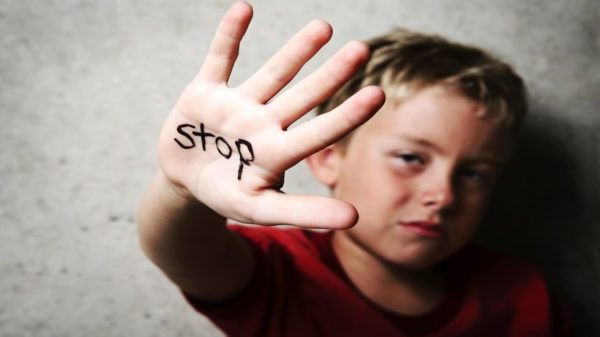I know I’ve plastered this all over Facebook, but I want to announce here that I found out Jamie isn’t accepting just 13 participants for the Channeling Erik Weekend of F-ing Enlightenment in Denver. (Why in the hell did I pick that number? I don’t know. Senile, I guess.) She’s accepting 30. Even though the event is booking up fast, she can’t go over that number because she wants it to be very intimate. I hope you guys sign up because I’ve never heard one single person in previous events not say, “That was life changing.” I can’t wait to see you guys who are lucky enough to come!
Today’s topic deals with the choices we make after an abusive childhood, but it can also apply to many struggles in life, perhaps all. Take it away, my boy!
Me: Why is it that some people can go through the same things like an abusive childhood and some end up with a poor self-esteem and some don’t?
Erik: It’d be nice to say that they’re just fucking amazing people, but of course we’re all amazing.
Me: Of course. You’ve said many times that we’re perfect just the way we are.
Erik: One of the reasons this can happen is because some people come into life with a strong sense of self, and they recognize immediately that all those actions don’t reflect who they are. They come in with that strong sense of self because that’s one of the things they wanted to bring with them. A weak identity wasn’t what they wanted to learn from.
Me: Ah!
Erik: Maybe that was something they wanted to teach to everyone else—how to have a strong sense of self so they can find their way. Other people may come into this life without that strong sense of self. They don’t know who they are. Usually that’s because they want to understand what it feels like to be lost. They want to experience what being lost is, and that creates opportunities for them to reach out and ask for help. That takes being humble, so it’s often a lesson in humility. They start seeking out those teachers and those people who will help guide them through the process of figuring out who they are.
Me: It could also be a lesson in how to create yourself and find your power.
Erik: That’s right.
Me: So what do you suggest to people with no sense of self-love, no sense of self-respect—a low self-esteem?
Erik: The key is to first recognize that you’re suffering and be okay with that. You gotta be okay with that. There’s nothing wrong with being honest with yourself that you’re suffering. Don’t feel like that makes you a pussy!
I chuckle.
Erik: There’s nothing wrong with pussy, though.
Me: Erik!
Erik: That recognition in itself is a lesson in vulnerability. Vulnerability is so fucking important. It’s the thing that opens you up to everything and all kinds of experiences. When you’re truly vulnerable, it’s not where you’re whining and going, “Woe is me.” That’s not being vulnerable. That’s just being stubborn, being stuck. That’s when you just wanna wallow in it. That’s what you chose as being comfortable. That’s the comfort zone you’ve created for yourself. Vulnerability is when your guard is completely down, and you’re allowing everything that needs to come in and everything that needs to get out to be released. In the case of mediums, they have to be vulnerable in order to allow us to funnel messages through them. That takes a lot of fucking trust. That’s what I was getting to next. Vulnerability is a divine expression of trust. It’s complete trust. You know you’re going to be okay. Let’s talk about some examples of vulnerability. Say you have someone who’s passed away or maybe you’re suffering from the loss of a relationship. You sit down and cry about it. I mean you really cry. You let the full force of your emotions come out through your tears.
Me (solemnly: I’ve done that.
Erik: Every time that happens, even though you might still feel like shit, you feel a little bit lighter.
Me: That’s true.
Erik: Another example of vulnerability, cuz I don’t want to just focus on grief, is when you see something funny on television, and you just bust out laughing. You don’t care how dorky your laugh sounds or if you snort. That’s vulnerability.
Me: I guess that’d entail being completely emotionally honest with yourself and others.
Erik: Completely.
Me: So in the case of low self-esteem, it’s about acknowledging your suffering and being emotionally honest about it. Then what?
Erik: That’s the biggest step, and it’s the hardest. But that first step gives you the momentum to get to the second step where you’ll spontaneously become unstuck. You start doing things that you didn’t do before. For some people, that doesn’t work as well for them. In those cases, they need to reach out. They need to ask someone to come in. That’s another manifestation of trust. The first one was an example of trust and vulnerability with yourself. That’s about energetically letting things in and out. But in these other people, they have to be externally vulnerable. There are going to be some people who say, “But I don’t have anybody to help.” They need to go fucking find them! That’s what a therapist can be really good for. If they don’t have the money to go to a therapist, they can seek out help from spiritual or religious centers and talk to the clergy or whatever.
Me: But with people who have a low self-esteem, it’s difficult to be vulnerable to others because they’re afraid of being judged. They’re afraid to expose their flaws.
Erik: That’s why they were drawn to attaching themselves to that label of a low self-esteem. Suffering is a really good motivator. It can get you to come out of your shell. A lot of people can’t understand why pain even exists. That’s the biggest reason it does. Without having that contrast that kicks us in the ass, what incentive do we have to find out who we really are and to get into the whole deep nitty gritty of who we are? We can’t get there if we stay trapped in our comfort zone. That’s what the human experience is about. Let me tell you about who we are and what that means.
Me: Okay.
Erik: We are nothing but emotions. I’ve said that before.
Yeah. A lot!
Erik: And the thing that connects all life—ALL LIFE—is emotions. Once you figure that out and go through all the different kinds of emotions that are within you, then you’ll be able to see everybody else. You see that no one is really different from another. What gives the illusion of making us seem separate and different are our individual experiences. At the core, though, we all feel the same stuff, hence the connection.
Hence, Erik? Really?
Me: Experiences that make us create labels for ourselves and others?
Erik: Yeah, partly. Labels are just an illusion.
Me: So, I guess, once you can see other people like that, that’s when you can form connections.
Erik: Right. Here’s another example. Through my suffering, I created connections. I would sit down at Starbucks because I was lonely, but I had this ability to draw people to me. Sometimes they’d come to me, and sometimes I’d go to them. That’s one of the reasons I’d go up to people to bum smokes.
Me: I know!
Erik: It’s a great way to start up a conversation, and I could feel when people needed something.
Me: Yeah, you helped a lot of lost souls even when you were here.
Erik: That really prepared me for reaching out and making the connections from where I am now. Sometimes, when you’re suffering, you should get out. Go to a restaurant. Show how you’re really feeling. Let it come across in your body language. Express it in a way that’s completely vulnerable and not with your guard up and not pouting. Be approachable. You’ve seen people before where their shoulders are slumped and have their sad, puppy dog eyes, and you can’t resist going up to them and giving them a hug. That only happens when they have that approachable, unguarded vulnerability. If a person looks sad but has their arms crossed and looks tense, they’re sending out the message, “You stay the fuck away from me.” Who the hell is going to walk up to that?
Me: Well how many people are going to walk up to a stranger and give them a hug?
Erik: It doesn’t have to be a physical hug; it can be an emotional one.
Me: Still, how many people are going to do that?
Erik: It happens more than you think because when you’re vulnerable, you’ve open yourself up to the Universe and said, “I’m willing to accept what I need,” then it will come to you. Sometimes it will come to you in a person, and, yes, that person has to have some ability to be vulnerable to give that hug or kind word, but sometimes they can come in the way of signs. That can be like a hug.
Me: What about pet therapy? Does that help a low self-esteem?
Erik: Pets can work great. They can really help because they create a type of connection that let’s you be vulnerable in a way that you don’t feel judged. It feels unconditional. They also teach humans how to be that same way.
Me: Well some people say that reaching out and helping others can boost your own self-esteem.
Erik: True, but that doesn’t work for everyone because some people are just so mired in their shit that they don’t have the emotional energy to do it. But for other people who have trouble allowing themselves to be vulnerable, they might recoil at helping or reaching out to someone else. It’s because they can’t embrace their vulnerability. Another aspect of vulnerability is humility, and you need that to be of service to someone. If you can’t be humble, it’s not going to be easy to help someone.
Me: Why is humility so important to being of service? I know it is, but…
Erik: We talk about ego, and it means different things to different people, but, from a spiritual perspective, we’re talking about the thing that can inhibit vulnerability and keep us in that perpetual state of pain that keeps us stuck. It’s the thing that might make us think we’re better than someone else or that we matter more than someone else, that one religion is better than another, or whatever. That’s the kind of ego I’m talking about.
Me: I see. Okay.
Erik: That ego is what keeps us in the shithole. It closes doors and keeps us out of that state of vulnerability. To be of service, to help others in a way that will improve your self-esteem, you’ve got to push that ego aside.
Me: Any other advice?
(Long pause)
Erik: I’m thinking about it. I’m thinking about it.
I giggle.
Me: I thought I smelled sawdust burning.
Robert: He gives me the image of him sitting in a chair with his ankle crossed over his knee, and he’s leaning over, thinking.
Erik (straightening up in the chair): Nope. Nothing else.



